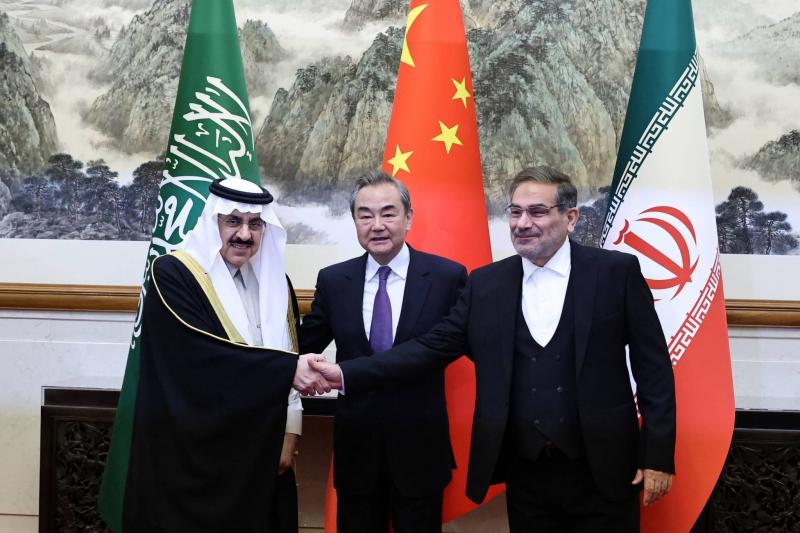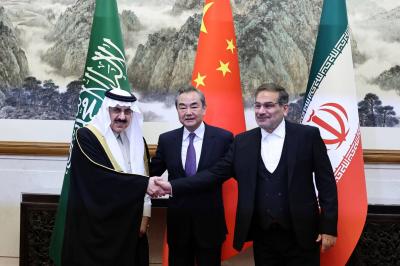On January 22, 1963, French President Charles de Gaulle and West German Chancellor Konrad Adenauer signed the "Treaty of Cooperation," known as the "Elysée Treaty." The two giants ended one of the worst periods of warfare in Europe, including the two world wars, transforming the nations into key allies on the continent, with the children of the leaders of Nazi Germany becoming honored guests at the military parade on July 14. Arab and foreign commentators are now asking: Will the Beijing agreement between Saudi Arabia and Iran succeed? Before attempting to answer, it is essential to reflect on Ireland's recent celebration of the 25th anniversary of the reconciliation agreement between the north and the south, the Catholics and Protestants, enemies for centuries.
Neither the Elysée Agreement was possible nor the Irish Agreement was expected. Yet both agreements succeeded. Thanks to both sides, not just one. The Beijing Agreement will succeed if Iran adopts the approach that Saudi Arabia has embraced for decades: sending aid, schools, and hospitals to Yemen instead of weapons, incitement, and drones. It will succeed if Tehran behaves like Germany and France, deciding to respect the sovereignty of nations and the dignity of peoples. It will be even more successful if Saudi Arabia participates in rebuilding the countries that wars have devastated and impoverished, destroying the lives of their peoples.
In principle, the "Beijing Agreement" is a gateway to a new history and a deep reconciliation akin to the Elysée Agreement. It represents a major partnership for peace, development, and the welfare of the region's peoples. The Franco-German reconciliation appears small compared to the vast potential for Saudi-Iranian cooperation. All of this depends on shedding the spirit of war and focusing on investing the enormous wealth in development and progress.
The Saudi model is nearing a global model similar to the Chinese one, while Iran's wealth remains trapped by sanctions and the waste of senseless wars. Reconciliations cannot take place if the future remains hostage to the past. The past is a psychological barrier that continues to rise unless wisdom and courage surpass hatred and complex grievances.
The trajectory of the Saudi-Iranian agreement is astonishing so far. Every step is a step taken by statesmen. Every day brings new hope to the region, as each step widens the doors of life and security. History is shifting here, to Asia, in remarkable strides. Here comes Emmanuel Macron, the heir to the French empire, going to Beijing, seeking France and Europe’s assistance. China is no longer a fear that the West seeks to confront, but a reality that is learning how to engage with. As the American saying goes: "If you can't beat them, join them."
We do not wish to oversimplify matters. However, the world is not composed solely of grievances and wars. The German-French and Irish examples are proof and evidence.




